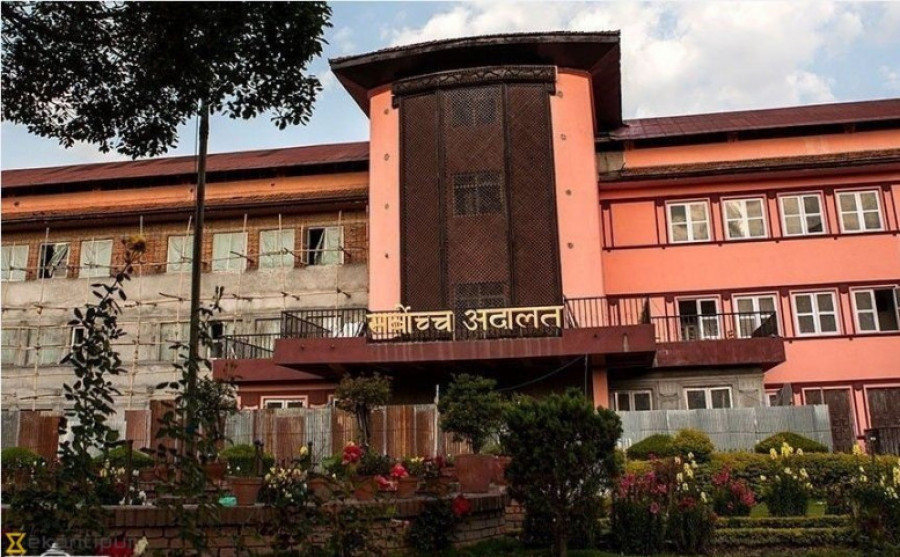National
After months, Supreme Court finally issues verdict in favour of new curricula for grade 11
While private schools had been sticking with the old curricula public ones had adopted the new one.
Binod Ghimire
Ending months of confusion, the Supreme Court on Tuesday opened the door for the government to implement the new curricula for grade 11.
A division bench of Justices Tej Bahadur KC and Prakash Dhungana quashed a writ petition filed by Bhagwata Aryal, a member of the Mathematics Concern Group, demanding that the government be ordered to not implement the new curricula.
The group is a loose network of people dissatisfied with the Curriculum Development Centre’s decision to treat mathematics as an optional subject in grades 11 and 12.
“The bench has quashed the petition against the implementation of the new curricula,” Kishor Poudel, communications expert at the Supreme Court, told the Post. “It has, however, directed the Ministry of Education and the Curriculum Development Centre to review its decision to treat mathematics as an optional subject, after consultations with local governments and experts within a year.”
The court, according to Poudel, has authorised the government to decide whether the subject is to be incorporated into the curricula or not.
Responding to the writ filed by Aryal on October 14, the Supreme Court on October 26 issued an interim order halting the implementation of the new curricula until a final verdict in the case.
According to the new curricula, students will have to study six subjects each in grades 11 and 12 instead of the five they have been doing. Three of these are compulsory — English, Nepali, and Social Studies in grade 11 and Life Skills Education in grade 12 — and three other elective subjects. Mathematics is one of the 80 optional subjects the students can choose from
The new curricula, according to the Curriculum Development Centre, has been designed to switch to the single-track curricula for grades 11 and 12 from the system of four disciplines where students after passing grade 10 chose Science, Management, Humanities or Education stream.
Hearing on the case had resumed on Monday, around three months after the interim order was issued, even as thousands of students continued their academic year. The verdict was issued on Tuesday after two days of continuous hearing.
Schools started classes for grade 11 classes a month after the National Examination Board published the results of the Secondary Education Examinations (SEE) on August 17.
Among the 482,986 students who had registered for the grade 10 national exams this year, 472,078 were promoted to grade 11 based on an internal evaluation, as the SEE could not take place due to the pandemic.
The interim order had obstructed classes, mainly in public schools that had already adopted the new curricula. A majority of the private schools, however, had been sticking with the old curricula.
Months of disruption caused by the pandemic has led the government to truncate the academic year. It is one of the reasons why private schools are reluctant to adopt the new curricula that have increased the number of subjects from five to six.
Lok Bahadur Bhandari, general secretary of Higher Institutions and Secondary Schools’ Association Nepal, said they are not satisfied with the verdict. “We still believe this is not the right time to switch to the new curricula,” he told the Post. “However, we will respect the court’s verdict.”
The association had been lobbying for the postponement of the implementation of the new curricula. But, Giriraj Mani Pokharel, the then-education minister, was adamant about adopting the new curricula.
In order to integrate courses offered from grades 9 to 12, the Ministry of Education had decided to replace the previous curricula with a new one in January last year.




 9.7°C Kathmandu
9.7°C Kathmandu














